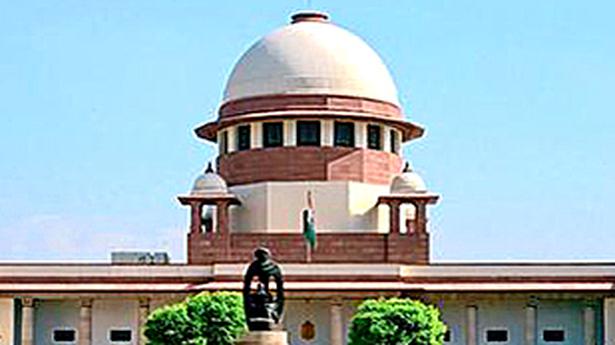
‘Stray’ rounds of counselling to fill vacant seats in NEET PG 2021 cannot go on forever: SC
The Hindu
Government says candidates do not opt for these seats which are mostly for non-clinical courses, despite nine rounds of counselling.
The Supreme Court on June 9 indicated that ‘stray’ rounds of counselling to fill over 1,400 vacant seats in NEET PG 2021 cannot go on forever while the government said candidates did not opt for these seats, which are mostly for non-clinical courses, despite nine rounds of counselling.
Appearing before a Vacation Bench of Justices M.R. Shah and Aniruddha Bose, Additional Solicitor General Balbir Singh, for the Health Ministry, submitted that out of a total 1,456 vacant seats in NEET PG 2021, over 1,100 were allocated to private medical colleges while the government had 300 vacant seats.
“Non-clinical courses are for those who prefer an academic life. They would not be medical doctors but would be qualified to teach subjects such as anatomy, etc. Very difficult to get such jobs. So students do not opt for these courses though there are seats available,” the law officer explained.
Mr. Singh also explained that 76.7% of the vacant seats belong to private institutions and students do not find it feasible to enroll for expensive non-clinical courses in these colleges which would ultimately not even guarantee them employment.
Advocate Gaurav Sharma, appearing for the National Medical Commission, said vacant seats in non-clinical courses was an annual phenomenon.
The court, on June 8, on a petition filed by a group of doctors led by Astha Goel, senior advocate Rachna Srivastava, advocates Charu Mathur and Milind Kumar, had taken serious note of the 1,456 vacant seats. The petitioners had sought a “special stray” round of counselling to fill up these seats. The court had said that seats could not be left vacant when the country, after a pandemic, could not afford a dearth of doctors.
After hearing the government’s version that such vacant seats were an annual feature, the Bench seemed to agree that there should be a limit to the counselling process for the PG 2021, which should not interfere with the upcoming NEET PG 2022 counselling process.

“Writing, in general, is a very solitary process,” says Yauvanika Chopra, Associate Director at The New India Foundation (NIF), which, earlier this year, announced the 12th edition of its NIF Book Fellowships for research and scholarship about Indian history after Independence. While authors, in general, are built for it, it can still get very lonely, says Chopra, pointing out that the fellowship’s community support is as valuable as the monetary benefits it offers. “There is a solid community of NIF fellows, trustees, language experts, jury members, all of whom are incredibly competent,” she says. “They really help make authors feel supported from manuscript to publication, so you never feel like you’re struggling through isolation.”

Several principals of government and private schools in Delhi on Tuesday said the Directorate of Education (DoE) circular from a day earlier, directing schools to conduct classes in ‘hybrid’ mode, had caused confusion regarding day-to-day operations as they did not know how many students would return to school from Wednesday and how would teachers instruct in two modes — online and in person — at once. The DoE circular on Monday had also stated that the option to “exercise online mode of education, wherever available, shall vest with the students and their guardians”. Several schoolteachers also expressed confusion regarding the DoE order. A government schoolteacher said he was unsure of how to cope with the resumption of physical classes, given that the order directing government offices to ensure that 50% of the employees work from home is still in place. On Monday, the Commission for Air Quality Management in the National Capital Region and Adjoining Areas (CAQM) had, on the orders of the Supreme Court, directed schools in Delhi-NCR to shift classes to the hybrid mode, following which the DoE had issued the circular. The court had urged the Centre’s pollution watchdog to consider restarting physical classes due to many students missing out on the mid-day meals and lacking the necessary means to attend classes online. The CAQM had, on November 20, asked schools in Delhi-NCR to shift to the online mode of teaching.









